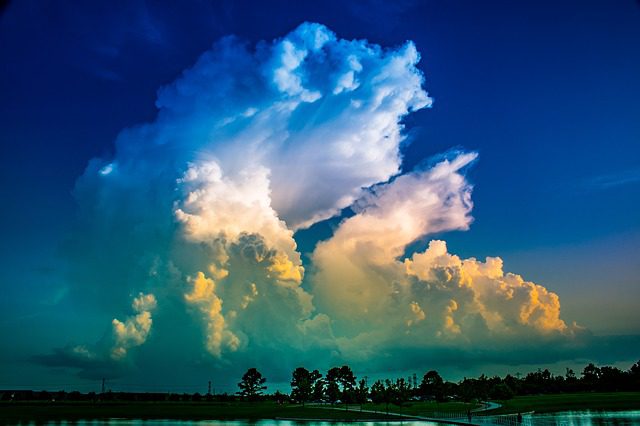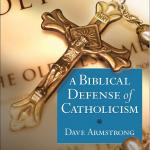
From my book, The Catholic Verses (Sophia Institute Press, 2004, pp. 135-138).
*****
Hebrews 12:1: “Therefore, since we are surrounded by so great a cloud of witnesses, let us also lay aside every weight, and sin which clings so closely, and let us run with perseverance the race that is set before us.”
Catholics believe that the saints in heaven are aware of happenings on the earth. They are not isolated and removed from earthly realities, but intimately involved in them, as Hebrews 12:1 strongly suggests. Witnesses is the Greek word martus, from which is derived the English word martyr. The reputable Protestant Greek scholars Marvin Vincent and A. T. Robertson comment on this verse as follows:
[T]he idea of spectators is implied, and is really the principal idea. The writer’s picture is that of an arena in which the Christians whom he addresses are contending in a race, while the vast host of the heroes of faith . . . watches the contest from the encircling tiers of the arena, compassing and overhanging it like a cloud, filled with lively interest and sympathy, and lending heavenly aid (Marvin R. Vincent, Word Studies in the New Testament. 4 vols. Grand Rapids, Michigan: Eerdmans Pub. Co., 1946, IV, 536).
“Cloud of witnesses” (nephos marturon) . . . The metaphor refers to the great amphitheater with the arena for the runners and the tiers upon tiers of seats rising up like a cloud. The martures here are not mere spectators (theatai), but testifiers (witnesses) who testify from their own experience (11:2, 4-5, 33, 39) to God’s fulfilling promises as shown in chapter 11 (Word Pictures in the New Testament. 6 vols. Nashville: Broadman Press, 1930, V, 432).
Protestants try to explain this away, because they seem to fear the notion that saints in heaven and earth have an organic connection. They want simply to “go straight to God” and bypass all the mediating functions of the saints. This makes no more sense than it would to ignore the aid of fellow Christians on earth, whom we ask to lend a hand or pray for us. Albert Barnes provides one example of the Protestant outlook in this regard, in commenting on this passage in his Notes:
It cannot be fairly inferred from this that he means to say that all those ancient worthies were actually looking at the conduct of Christians, and saw their conflicts. It is a figurative representation, such as is common, and means that we ought to act as if they were in sight, and cheered us on. How far the spirits of the just who are departed from this world are permitted to behold what is done on earth — if at all — is not revealed in the Scriptures. (Barnes’ Notes on the New Testament. Grand Rapids, Michigan: Baker Book House, 1983)
But Hebrews 12:1 does reveal it! Barnes’s theology will not let him see what is right in front of him, even though Robertson and Vincent see it. How does Barnes know this is “a figurative representation”? He provides us no reasons. What inherent limitation would stop saints in heaven from watching activities on the earth? Is it not more reasonable to assume (even apart from the scriptural evidence) that those in heaven will have at least as much knowledge of, and interest in, earthly affairs as those on the earth?
Barnes claims that Scripture does not inform us how much those in heaven know about the earth. Yet Revelation 5:8 and 6:9-10 show the saints assisting in offering God the “prayers of the saints” (in which case, presumably, they were aware of them) and praying for a certain outcome of events on the earth.
Protestant Bible scholars Jamieson, Fausset, and Brown, commenting on Revelation 6:10, write:
The elect (not only on earth, but under Christ’s covering, and in his presence in Paradise) cry day and night to God, who will assuredly, in His own time, avenge his and their cause. (Robert Jamieson [Presbyterian], Andrew R. Fausset [Anglican], and David Brown [Anglican]. Commentary on the Whole Bible. Grand Rapids, Michigan: Zondervan, 1961)
Catholic theologian Ludwig Ott wrote:
The angels and the saints lay the prayers of the holy on earth at the feet of God, that is, they support them with their intercession as also might be expected from the permanency of charity (1 Cor. 13:8). The propriety of invoking them logically follows from the fact of their intercession (Fundamentals of Catholic Dogma. Translated by Patrick Lynch. Edited by James Canon Bastible. 4th edition in English. Rockford, Illinois: TAN Books, reprinted in 1974, 318).
The saints are alive, and they love us! Protestants tend to think that such intercessions or involvements of the dead saints lead inexorably to idolatry. But they do not, because we are not trying to replace God with saints. Idolatry is worshiping something or someone in place of God Almighty. Venerating a saint or asking him to pray is a fundamentally different concept.
***
Photo credit: Thoxuan99 (7-11-18) [Pixabay / Pixabay License]
***













